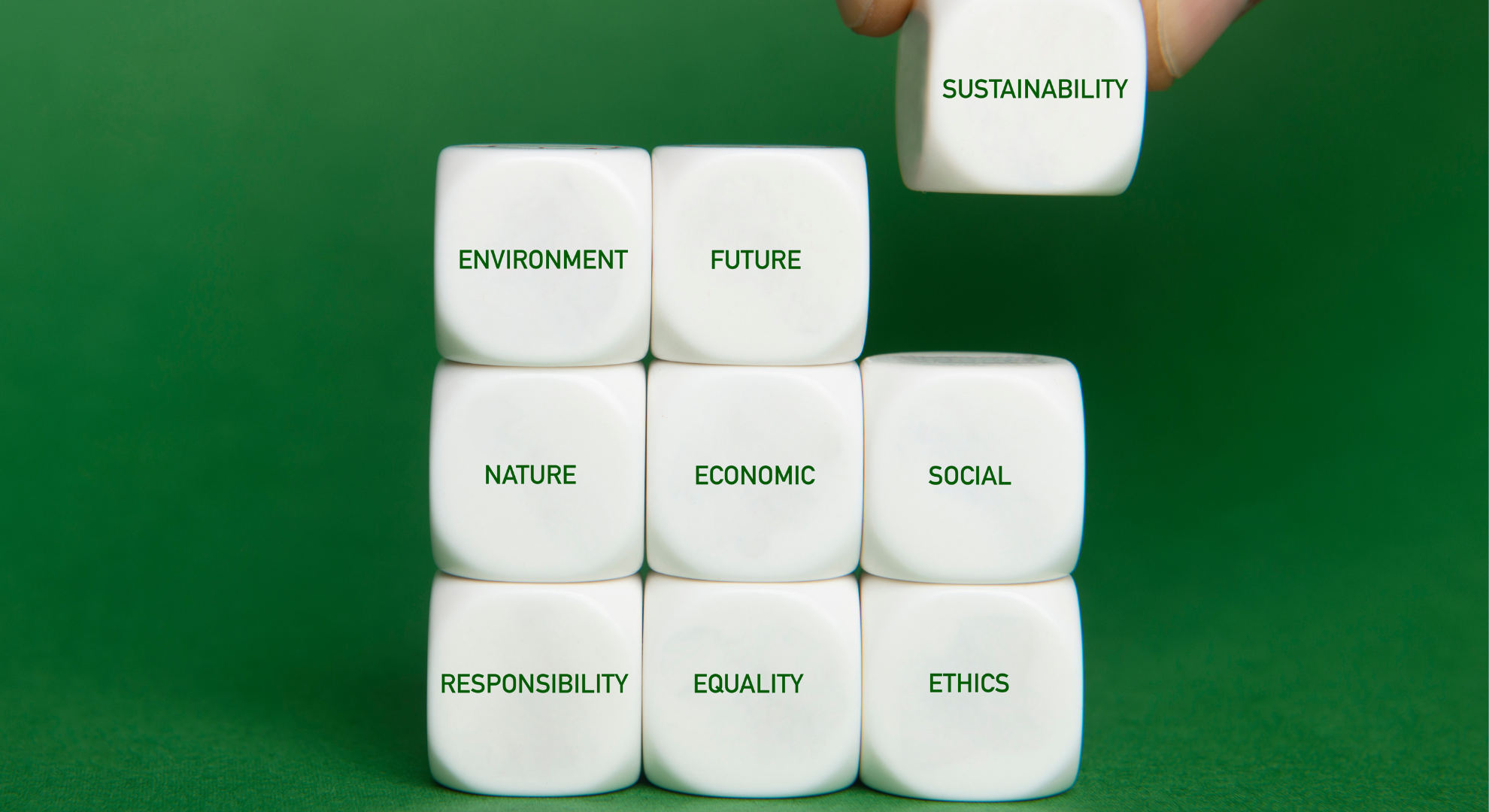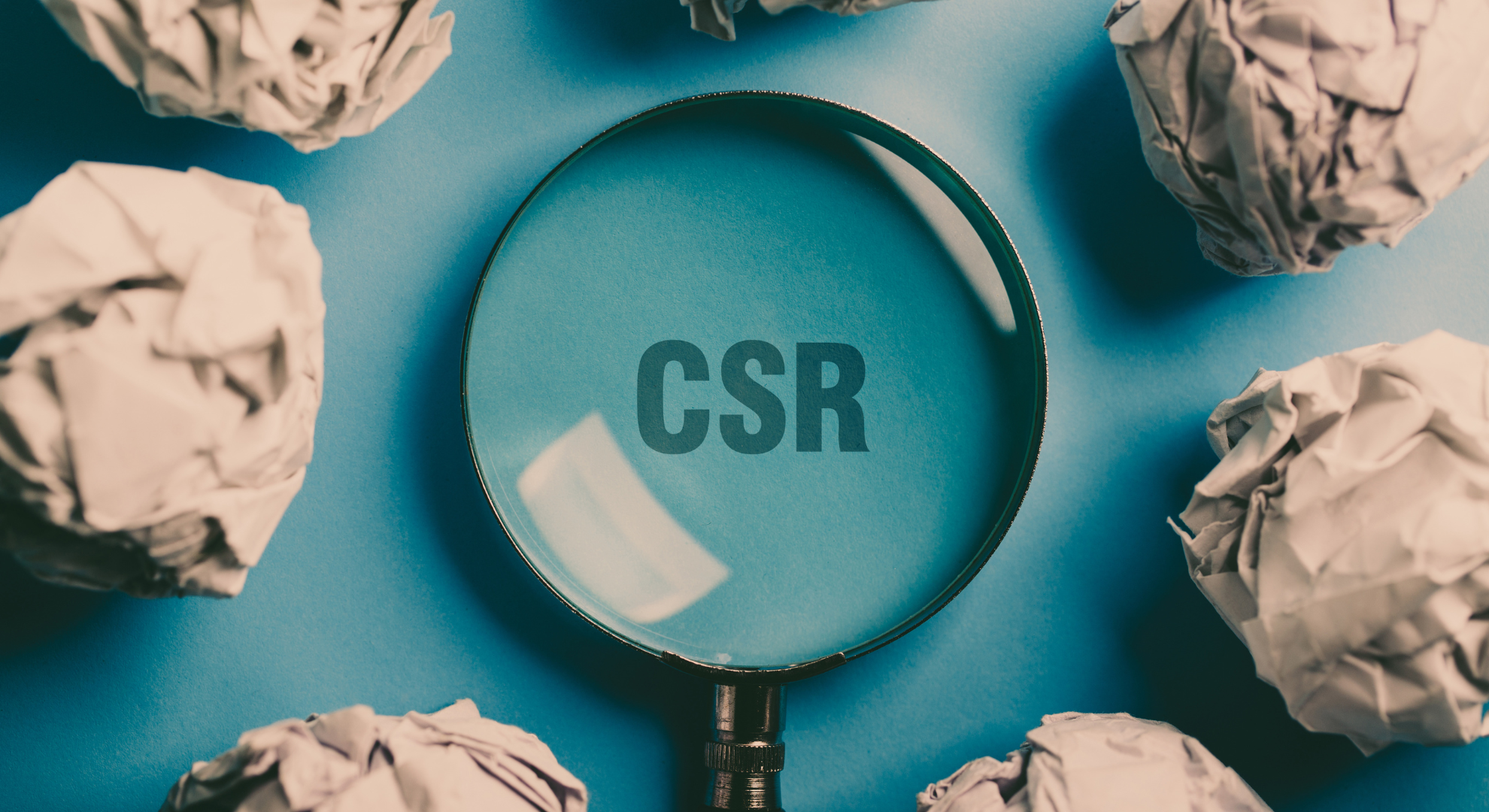B Corps are for-profit companies that have been certified by the B Lab to meet rigorous standards of social and environmental performance. The mission is to redefine success in business so that it works for all stakeholders.
In these times when more and more people care about the impact of their consumer choices, to be certified as a B Corporation makes complete sense. But what are the steps to becoming a B Corp? How can you get help? This article will cover it all.
Becoming a B Corp: The process
1. Go to the website: bimpactassessment.net
2. Complete the BIA.
2a. If you receive a score of under 80 (of a possible 200) points, the adventure ends here.
2b. If you earn a score of 80 or above, you are able to submit your assessment (once you’ve paid the submission fee).
3. Schedule a review call with a member of the B Lab team using the email sent to you a few days after your BIA submission.
4. At least 2 business days before your review call, upload the supporting documents for 6 to 15 randomly selected questions.
5. Attend the 60- to 90-minute review call to look over your answers to the assessment and the documentation provided, during which your score will likely be adjusted.
5a. If your final score is lower than 80 points, the adventure ends here.
5b. If your final score is 80 or above, you will receive a list of additional documents to be provided for a further set of questions (up to 6).
6. Complete the disclosure questionnaire.
7. Use the legal requirement tool to determine how you can integrate stakeholder consideration into the governance structure of your company, depending on its structure and location.
8. Sign the B Corp agreement, which lasts for 3 years and includes the interdependence declaration.
9. Pay the annual fees, which are based on the most recent annual revenue of your company.
Please note that this process can vary depending on the size of your company.
Onsite visits can, for example, be added for large companies.
Timeline and costs
The review process takes on average 6 to 10 months to complete, but due to the growing popularity of the certification and the steady increase in the number of applicants over the past couple of years, it can now take more than a year to complete in some instances.
With regard to fees, as at 2021, the BIA submission fee for businesses in the US and Canada is $150, with the annual certification fees costing $1,000-$50,000, depending on the annual revenue of your company (it can be more for companies with an annual revenue higher than $1 billion).
Tools and resources
The BIA
Using a multiple-choice questionnaire, the BIA assesses the impact of both your company’s day-to-day operations and its business model.
Help is provided for each question, such as definitions of terms, examples of companies who have already dealt with a particular topic, and best practice guides.
The assessment comprises about 200 questions that are tailored according to your company’s size, sector, and location.
Gathering and creating the documents needed to fill out the BIA takes on average 100 hours for a startup or small and medium-sized enterprises (SME) with no existing ESG data management software.
It takes then 1 to 3 hours to complete the BIA itself for a small company, but it can take longer depending on the size, age, and complexity of the company.
Questions addressing the company’s operational impact
Some samples of BIA questions can be found for each category, as below:
- How does your company integrate social and environmental performance into decision-making?
- Which of the following anti-corruption reporting and prevention systems are in place?
- What percentage of your company is owned by full-time workers (excluding founders/executives)?
- Based on referenced compensation studies, how does your company’s compensation structure compare with the market?
- How does your company engage and empower workers?
- What percentage of management is from underrepresented populations? (This includes women, minority/previously excluded populations, people with disabilities, and/or individuals living in low-income communities.)
- Does the company currently use any of the following specific practices to reduce carbon emissions from transportation?
- What percentage of energy used is from renewable on-site energy production for corporate facilities?
- Questions addressing the impact of the company’s business model
Depending on your answers to the gating questions, your company’s business model may also be evaluated in the BIA in a series of questions that can, in most cases, add up to 30 points to your score.
The questions usually focus on evaluating the intensity and relative magnitude of the impact of your business model, but some weighted and unweighted questions about the impact measurement and management are also included.
Specific questions about how your organization is managing the outcomes produced by the model might also be asked.
It must be noted that some of the calculations are automatically done based on the answers to previous questions.
Questions addressing disclosure
After completing 90% of the BIA, you will be asked disclosure questions about potential negative impacts.
Any sensitive information disclosed by your company about fines, sanctions, material litigation or sensitive industry practices on your records is handled confidentially by B Lab and does not directly affect your score.
However, the Standards Advisory Council and B Lab’s Board of Directors reserve the right to deny or revoke certification if a company’s previous behavior does not fit the spirit of the community.
Finally, a background check of your company and senior management team and a public complaints process is carried out by the B Lab team.
Best practice guides
Two main best practice guides are available for free on the B Corporation website to help candidate companies with the overall comprehension of the certification process and requirements: One is dedicated to small to medium-sized companies and the other to large companies.
There are also best practice guides that cover more specific topics, such as how to engage and retain a diverse workforce and how to build engagement and accountability through transparency.
Other guides provide companies with tips for and examples of how to best implement practices such as monitoring water use or conducting supplier surveys.
Once a company becomes B Corp certified, it receives access to the full catalogue of documentation and best practices available via the B Hive online platform to help improve its impact score.
Logging on to this tool also allows B Corps to connect and collaborate with the community and benefit from discounts offered by other members and partners, as well as find out about other B Corps’ products and services.
Improvement reports and case studies
After completing the BIA, companies will receive a tailored improvement report proposing a timeline of actions to be implemented within 1 to 6 months, 6 to 12 months, and 12 months plus, so that they can increase their score.
Some case studies of businesses who managed to increase their score subsequently are also available, allowing companies looking for inspiration to see what practices others are implementing.
Other resources
The B Corporation website also offers free access to an employee handbook template, as well as external resources including The B Corp Handbook and videos explaining how to improve your BIA score.
A B Climate Tools Base, which curates documentation and tools from different organizations to help companies take action on environmental aspects, is available online as well.
More than 350 reports, as well as interactive tools, case studies, online courses, policy documents and podcasts can be found on this website.
In addition, B Corp-certified companies can participate in various challenges, such as 2019’s call to action for an inclusive economy, and receive access to dedicated internal and external resources to help them achieve the expected metrics.
These resources include guides on how to grow a diverse workforce, guidelines on how to set gender diversity targets, and an introduction to web accessibility.
How to get help
B Leaders
B Leaders training programs have been created in the UK, France, and many other regions to support candidate and B Corp-certified companies needing help in getting to grips with B Corp terminologies, tools, and processes.
Training typically includes sessions dedicated to the understanding of the B Corp ecosystem, advice and tips on using the latest version of the BIA tool, as well as a step-by-step review of the certification process.
Some practical cases are also presented to trainees as a way of sharing best practices on how to engage internal and external stakeholders, improve their company’s score, and communicate the company’s impact performance.
This training also provides a good opportunity to meet B Corp-certified companies that are willing to share their experiences.
Prices for the program start at $500 for one person, rising to $20,000-$30,000 to train all the people in the company who are involved in the B Corp-certification process.
External tools
The application process for B Corp can be intimidating and time-consuming.
Not all companies can dedicate time to figuring out what documents are needed for filling the forms, and even if the companies do, does it mean the information is accurate?
A lack of documentation and accuracy in the audit phase could compromise the certification process.
And that’s why we created apiday! To help you streamline your processes.
Our artificial intelligence software can complete applications in no time, saving you months of work. Just send us all the required documents, we’ll handle the rest!
Related articles
Global Reporting Initiative: What It Is and How to Do It
GRI stands for Global Reporting Initiative, and is an international independent standards organization that promotes sustainability reporting through the development of global standards for corporate responsibility, including environmental, social and governance (ESG) reporting...
Impact – What is Impact
The Corporate Sustainability Reporting Directive (CSRD) requires large businesses and SMEs to produce annual reports on their environmental and social impacts.
CSRD – What is CSRD
The Corporate Sustainability Reporting Directive (CSRD) requires large businesses and SMEs to produce annual reports on their environmental and social impacts.
Corporate Sustainability Reporting Directive: All you need to know
The Corporate Sustainability Reporting Directive is an EU regulation that will have a huge impact on how organisations report their environmental, social and governance (ESG) performance...
Sustainability – What is Sustainability
The GRI is an international independent standards organization and currently issues one of the most well-known standards for ESG reporting (GRI Standards).
Discover the latest Sustainability Recent Developments to improve your companies
Sustainability is a concept that evolves due to pressing sustainability challenges, worldwide issues, and its own concept limits. New concepts have emerged to think further and respond better to all the world’s current challenges...
GRI – What is the Global Reporting Initiative
The GRI is an international independent standards organization and currently issues one of the most well-known standards for ESG reporting (GRI Standards).
What is Materiality and Why it matters in business
Materiality is crucial for sustainability reporting because it allows companies to focus on the most important aspects of their sustainability efforts. A company can choose to report on all aspects of its sustainability program, but this would be extremely time-consuming and would probably not be very useful for investors and other stakeholders...
Materiality – What is Materiality
ESG is an acronym for Environmental, Social, and (Corporate) Governance. It refers to the non-financial factors of a corporation’s impact.
EcoVadis – What is EcoVadis rating
Created in 2007, EcoVadis provides a collaborative web-based rating platform for assessing the sustainability performance of organizations worldwide.
Impact-washing – What is Impact-washing
Impact washing can be defined as any marketing claim about a product/good/service/funds triggering a change in the real economy that cannot be supported by evidence.
ISO 26000 – What is ISO 26000
ESG is an acronym for Environmental, Social, and (Corporate) Governance. It refers to the non-financial factors of a corporation’s impact.
B Corp – What is B Corporation certification
ESG is an acronym for Environmental, Social, and (Corporate) Governance. It refers to the non-financial factors of a corporation’s impact.
The concept of impact on social and environmental issues and its implication for companies
Impact measurement is a powerful tool for companies to gauge their impact on social and environmental issues. In this article, we will discuss the concept of impact, its implications for organizations, and how it can be measured...
The most important and recent developments of ESG (Environmental, Social and Governance)
Being a B Corporation is not just about making profits and creating wealth for a company, it is a way of creating a more sustainable future for society! Discover our article about B corps and its benefits here...
CSR – What is Corporate Social Responsibility
CSR is centered on the idea that businesses have a responsibility to benefit the society that they exist within—a broader view than the one that says businesses’ only responsibility is to produce economic profit.
What is a B Corporation: what this means and its benefits for companies
Being a B Corporation is not just about making profits and creating wealth for a company, it is a way of creating a more sustainable future for society! Discover our article about B corps and its benefits here...
The guide to EcoVadis certification: frequently asked questions
This guide will take you through the steps of the EcoVadis Certification process, and explain what is involved in becoming a certified business...
The implications of ISO 26000 for companies
ISO 26000 is a standard providing direction for the application of social responsibility to the activities of an organization. But what does this mean? And how can organizations use it to create better and more sustainable business practices? Let's talk about it…
What is the meaning of CSR (Corporate social responsibility) and how to adopt it?
A Corporate Social Responsibility strategy refers to an organization's active consideration of the effects its activities have on the environment, employees, customers, and suppliers. Let's look at how your company could adopt such a program...
ESG – What is Environmental, Social and Governance
ESG is an acronym for Environmental, Social, and (Corporate) Governance. It refers to the non-financial factors of a corporation’s impact.
4 reasons companies should adopt CSR, Corporate social responsibility
CSR is all about managing a company’s externalities while creating sustainable value for stakeholders and continuous innovation for the business. Let's break that down and explore why...
Carbon disclosure project reporting: what is it and how does it work?
Read our article about The Carbon Disclosure Project (CDP), an extra-financial questionnaire that collects data on companies’ environmental practices and performance...
What are the differences between Corporate Social Responsibility (CSR) and Environmental Social Governance (ESG)?
These terms are both used to describe an approach for businesses to integrate social and environmental factors into their governance policies, strategies, processes, and programs. Yet, they're not the same. Let's explore their key differences...
Why is ESG (Environmental, Social and Governance) important for a business
ESG (environmental, social and governance) can help businesses make sound decisions, and investors achieve better long-term returns. Let's discover how...













